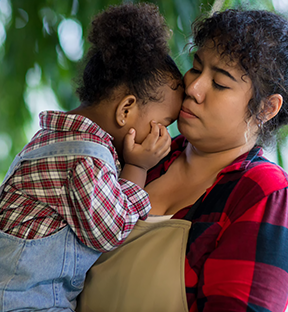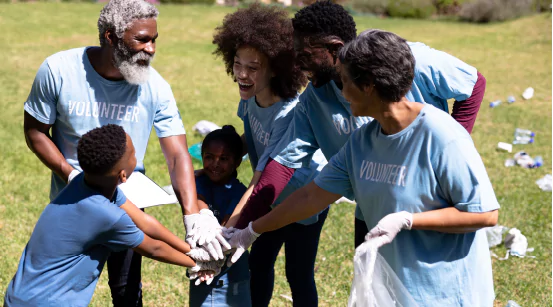Preventing the Impacts of ACEs
PREVENTING THE IMPACT OF ACEs
Disrupting ACEs
It is possible to counteract the impacts of ACEs and disrupt the cycle of risk stemming from early adversity.

Doing so involves efforts at different levels, from individual actions to community-wide initiatives and systemic changes.
Raising Awareness
Raising awareness about ACEs can help reduce the stigma around mental health issues and encourage people to seek help when needed.
The overall goal is to foster safe, stable, and supportive relationships and environments where children and families can flourish.

The Centers for Disease Control and Prevention (CDC) emphasizes a preventative approach to tackling ACEs. They suggest various strategies to promote healthy development for children.
SUGGESTED STRATEGIES AND THE SUGGESTED APPROACH
- Strengthening household financial security
- Implementing family-friendly work policies
- Conducting public education campaigns
- Enacting legislative measures to reduce corporal punishment
- Utilizing bystander approaches to prevent abuse and violence
- Engaging men and boys as allies in prevention efforts
- Implementing early childhood home visitation programs
- Providing access to high-quality childcare services
- Enhancing preschool programs with family engagement
- Teaching social-emotional learning to children
- Offering safe dating and healthy relationship education programs
- Providing parenting skills training and family relationship support
- Establishing mentoring programs
- Offering after-school programs for enrichment and support
- Enhancing primary care services to address ACEs
- Providing victim-centered services for those affected by ACEs
- Offering treatment to mitigate the negative effects of ACEs
- Implementing interventions to prevent problem behaviors and future involvement in violence
- Providing family-centered treatment for substance use disorders

Positive relationships are essential for children’s growth and resilience, as they provide care and guidance and model healthy behaviors and relationships.
Research indicates that involvement in team sports during adolescence is linked to better health and well-being in adulthood, highlighting the importance of promoting sports participation and extra-curricular activities to build resilience among youth.


Social support also plays a significant role in offsetting the effects of ACEs. For example, pregnant women with a history of ACEs who receive strong social support are less likely to experience complications during pregnancy.
Factors like feeling safe in one’s neighbourhood can also help to disrupt the harmful effects of ACEs. Outside sources of social support, whether from family, friends, neighbors, or community programs, can provide a sense of belonging and resilience during difficult times.


Lastly, seeking trauma-informed care and therapy is crucial for addressing the effects of ACEs. Professional help can provide individuals with the understanding and tools needed to overcome the challenges posed by early adversity.